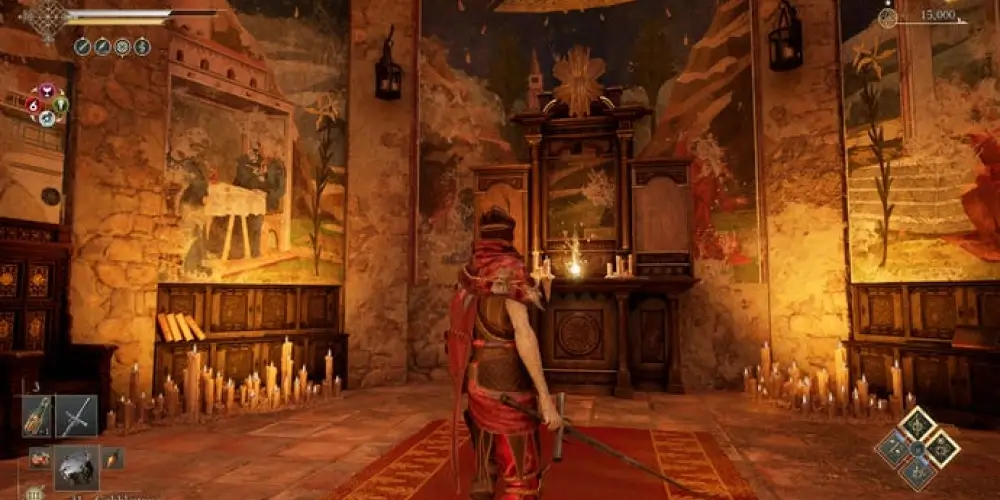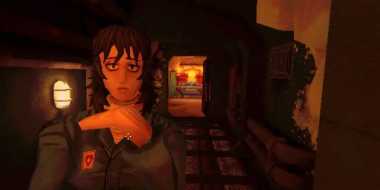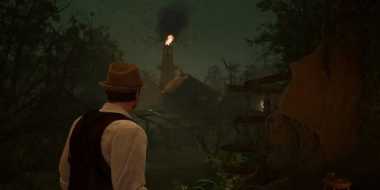

Enotria: The Last Song Review: A Straightforward, Sunny Soulslike
24/09/2024 Lauren Harris 2205
When it comes to Soulslikes, players expect cryptic lore, brutal combat, and dark, oppressive atmospheres. But Enotria: The Last Song, from Italian indie studio Jyamma Games, flips the script with a bright, sun-soaked setting and a more streamlined approach to the Soulslike formula. If you’re coming off hundreds of hours of Elden Ring and its massive Shadow of the Erdtree DLC, Enotria is the perfect palette cleanser: manageable in length, refreshing in tone, and familiar enough to scratch that itch.
The Language of Souls... but Make It Italian
When diving into a new Soulslike, there’s always a bit of mental gymnastics as you figure out the game’s equivalent for staples like bonfires, poison, and souls. In Enotria, there’s an extra twist: much of the game's terminology is actually in Italian. From enemy types to upgrade materials, you’ll be wading through a mix of familiar mechanics with a Mediterranean flair, which adds both charm and a bit of confusion—especially since the game isn’t keen on holding your hand.
Despite its compendium, Enotria does a poor job of explaining its deeper mechanics. You’ll get basic info early on, but the game’s more nuanced systems, like the Gratia status effect, are left unexplained. While this fits the cryptic nature of the genre, it’s frustrating when you’re trying to figure out why your health is suddenly blowing up. Still, it’s all part of the game’s quirky charm.
A Gorgeous, Inspired Setting
The first thing that sets Enotria apart from its genre peers is its striking visual style. Eschewing the dark, gothic tones of most Soulslikes, Enotria dazzles with vibrant environments inspired by Italian culture. From the sun-bleached cliffs of a Mediterranean coastline to a perpetual carnival in a town locked in enchantment, Enotria feels alive and colorful in ways you rarely see in the genre.
The game’s world is populated by masked humanoids trapped in roles that reflect their obsession with creating a "perfect" world—one that, of course, has instead led to madness and stagnation. Your protagonist, "Maskless," can assume these roles by collecting masks from enemies, offering a unique and fun system of customization. The masks provide buffs that range from extra healing to specific attack boosts, allowing you to tweak your build based on the challenges ahead.
Combat: A Bloodborne Vibe with a Twist
Enotria feels closest to Bloodborne in terms of combat, which is all about quick dodging and parrying. You’ll be swinging hammers, swords, and polearms, but even mages have to get up close and personal since spells in Enotria require you to charge them up by attacking enemies. That means even the most magic-focused builds will need to get their hands dirty in melee combat, which keeps the action intense and engaging.
Where things get interesting is in the game's skill system. With four separate trees (melee, magic, rogue, and elemental), there’s a surprising amount of flexibility. You can only slot six skills at a time, but that lets you mix and match in a way that adds depth to combat. Want to run a sword mage build that buffs your weapon with elemental enchantments? Go for it. Prefer to debuff enemies with status effects before unloading on them? You can do that too.
Enotria also introduces some cool status effects tied to its elemental system, each of which comes with both positive and negative consequences. For example, the Vis status boosts your attack power and stamina recharge but weakens your defense. This encourages players to constantly adapt and refine their strategies, adding a layer of depth beyond the usual "fire beats water" mechanics.
A Simplified, Sometimes Repetitive Adventure
Despite its smart combat systems, Enotria is more straightforward than your typical Soulslike. It lacks the sprawling, labyrinthine level design and sheer variety of its AAA counterparts, which means the combat can become repetitive if you don’t take full advantage of the skill system. If you stick to a single weapon and basic damage, you’ll miss out on the game’s finer points, which can make the experience feel more shallow than it really is.
And, for all its charm, Enotria is not without its issues. Bugs are a constant companion, ranging from camera glitches to NPC conversations getting stuck. More annoying are the occasional crashes and performance issues like screen tearing, which can take you out of the experience. I even managed to break the final boss on one attempt, leaving them frozen and defenseless—a rather anti-climactic end to what should have been a challenging encounter.
A Beautiful AA Game with Rough Edges
In the end, Enotria: The Last Song delivers an enjoyable, albeit flawed, Soulslike experience. It’s not as deep or sprawling as Elden Ring or Dark Souls, but its bright setting, flexible skill system, and clever status mechanics make it stand out in a genre often dominated by dark, gritty worlds. If you can look past its poor explanations and occasional bugs, you’ll find a unique adventure that’s perfect for players looking to lighten up after a brutal Soulsborne marathon.
In short, Enotria might not redefine the genre, but it’s a sunny, refreshing break from the shadows of its more famous peers. If you’re up for something new with a touch of Italian flair, this one’s worth the trip.
 Recent Blogs
Recent Blogs
Mouthwashing Review: A Twist ...
10/10/2024 3226
Pathologic 3 Announced with ...
08/10/2024 3027
Best Weapons in Black Myth: ...
06/10/2024 2247
Corporeal: A Horror Puzzle G ...
04/10/2024 1781
Ara: History Untold Review: ...
02/10/2024 2289
 Trending Blogs
Trending Blogs
Alone In The Dark Review
21/05/2024 3281
Larian Studios: Embracing N ...
05/08/2024 3264
Mouthwashing Review: A Twist ...
10/10/2024 3226
Pathologic 3 Announced with ...
08/10/2024 3027
Prince of Persia: The Lost Crown
25/05/2024 2998







